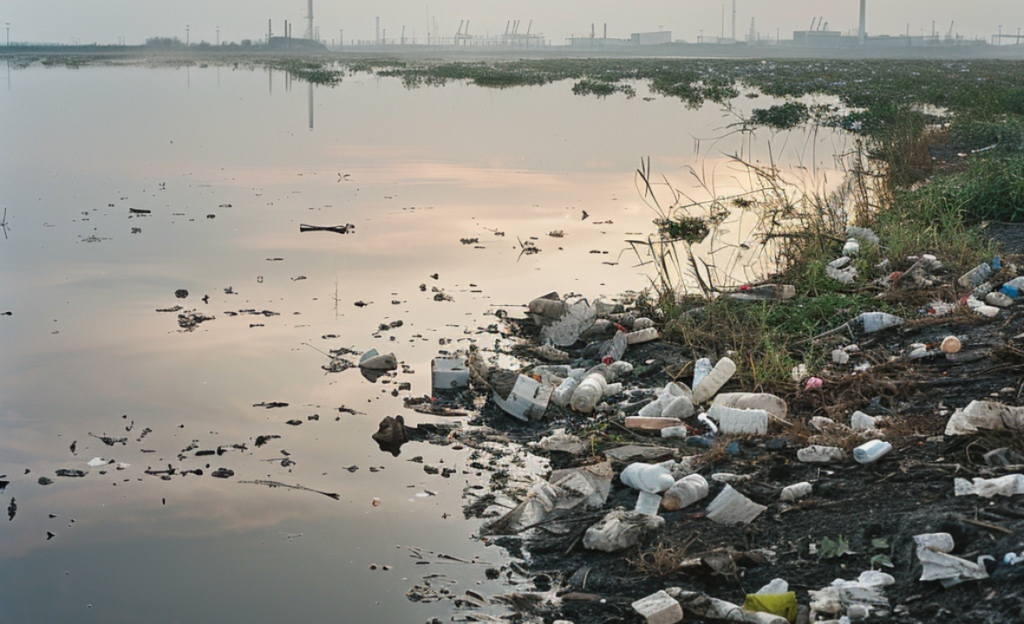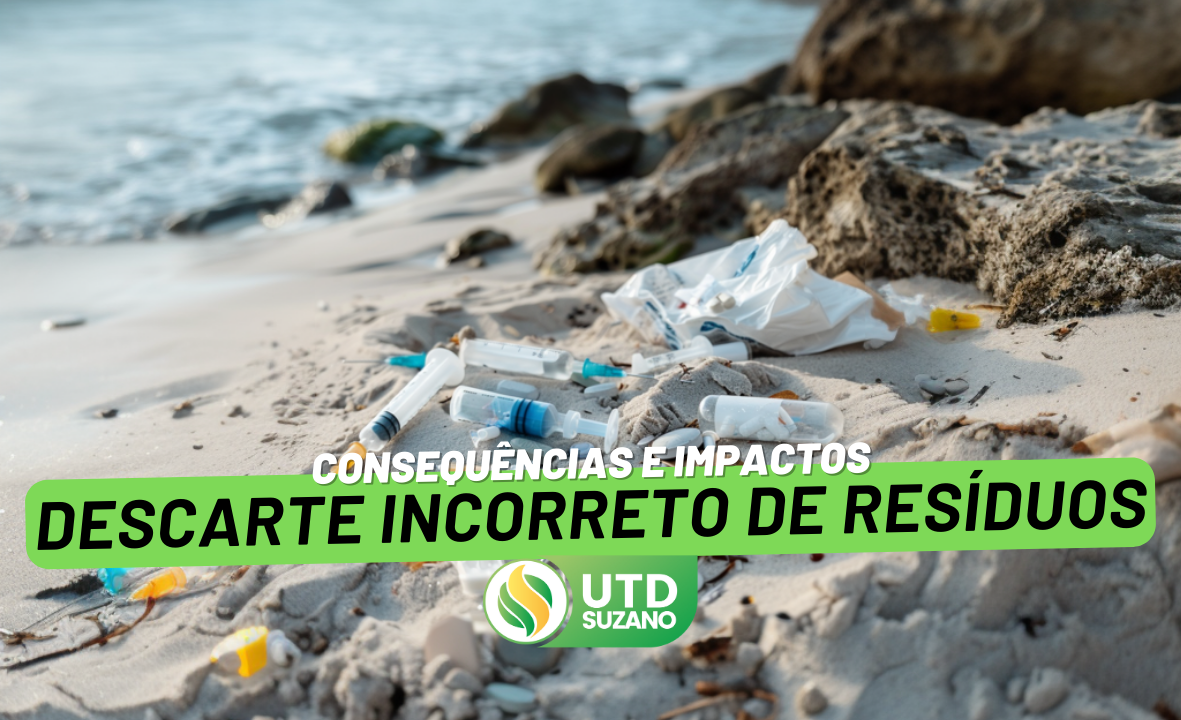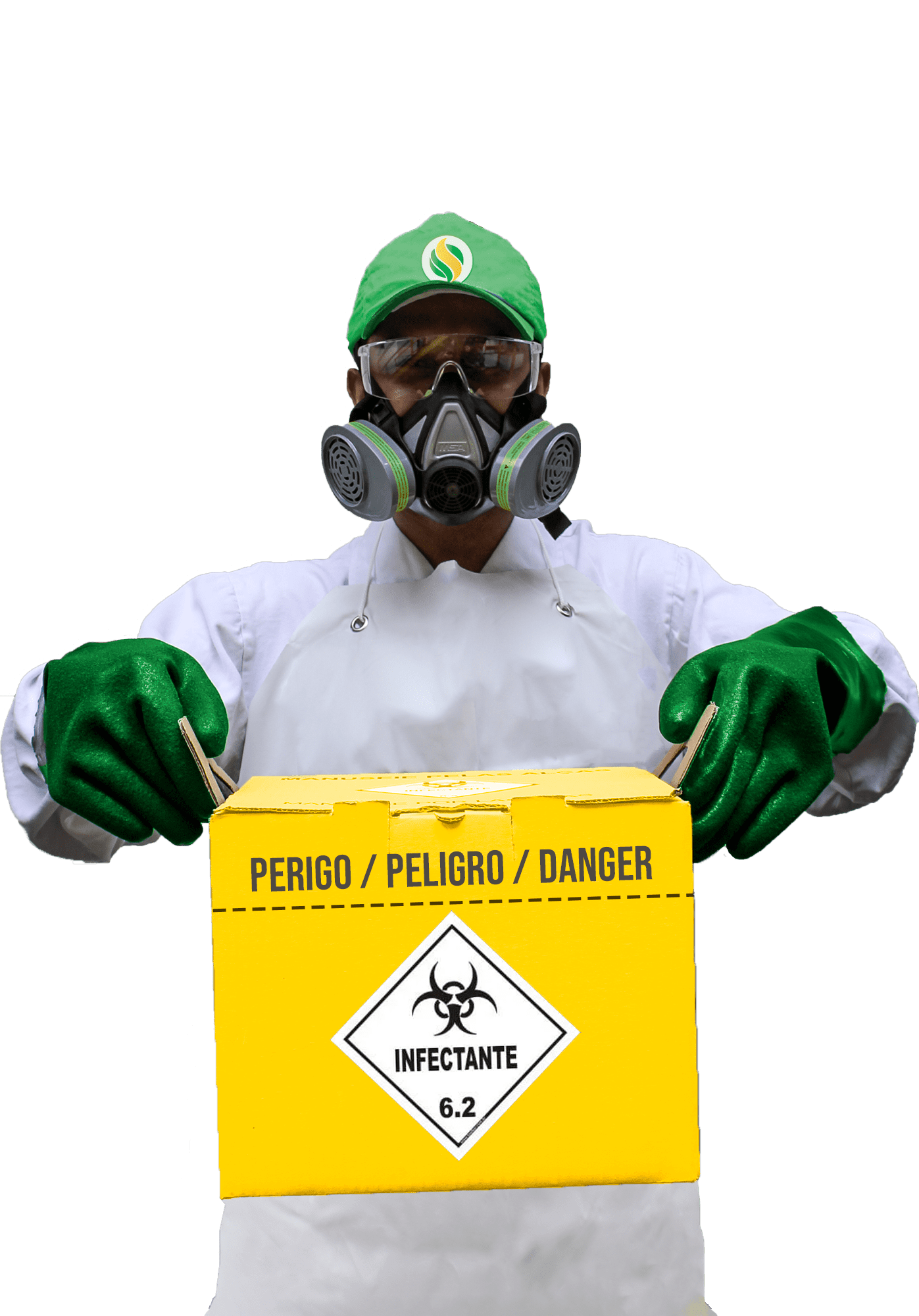In the business context, improper waste disposal can have serious repercussions for both the company and the environment. Many organizations, due to ignorance or negligence, end up disposing of their waste incorrectly, without considering the negative impacts of this behavior.
Legal Consequences of Incorrect Disposal of Hospital Waste
When it comes to hospital waste, such as sharps and chemicals, the legal consequences can be even more severe. Environmental laws and regulations establish strict guidelines for the handling, transportation, and disposal of these materials, aiming to protect public health and the environment. Companies that fail to comply with these standards are subject to significant fines and even lawsuits.
Some examples of environmental crimes related to improper disposal of hospital waste include:
Disposal in open dumps: Dumping hospital waste in inappropriate locations, such as open dumps, is illegal and poses a serious environmental risk. (National Solid Waste Policy (PNRS) Law No. 12.3)
Disposal in bodies of water: Disposing of hospital waste in rivers, lakes, or oceans is an environmental crime that can result in water contamination and harm aquatic ecosystems. (National Environmental Policy Law No. 9.605/1998)
Improper burial: Improper burial of hospital waste, without following specific norms and regulations, is a criminal practice that can result in soil pollution. (National Solid Waste Policy (PNRS) Law No. 12.305/2010)
Disposal in residential areas: Dumping hospital waste in residential areas or places not designated for such practice is illegal and poses a risk to public health. (Resolution of the National Environment Council (CONAMA) Law No. 358/2005)
Disposal without prior treatment: Hospital waste requires special treatment before disposal. Direct disposal without proper treatment may constitute an environmental crime. (Resolution of the National Environment Council (CONAMA) Law No. 358/2005)
Improper transportation: Improper transportation of hospital waste, without following specific packaging and safety standards, can also be considered an environmental crime. (Resolution of the National Environment Council (CONAMA) Law No. 358/2005)
Environmental Impacts of Improper Waste Disposal
In addition to legal implications, improper waste disposal can cause irreversible environmental damage. Soil, water, and air contamination by toxic substances and pollutants pose a serious threat to natural ecosystems and biodiversity.
Sustainable Practices: Ensuring a Safer and Healthier Future
Therefore, companies must adopt responsible and sustainable waste management practices, aiming to reduce, reuse, and recycle materials whenever possible. Investing in environmental education and employee training is also essential to ensure that everyone is aware of the importance of proper disposal. By prioritizing compliance with environmental regulations and respect for the environment, companies can not only avoid legal problems but also contribute to a more sustainable future for all.
As leaders committed to safety and the environment, at UTD Suzano, we rigorously comply with all established laws and requirements, including CONAMA (National Environment Council) standards. Furthermore, we are proud to be the only company with ISO14001 certification in the proposed scope, ensuring that our practices and procedures align with the highest standards of quality and sustainability. By choosing UTD Suzano, you can trust that your waste is being handled responsibly and following the best environmental practices.











